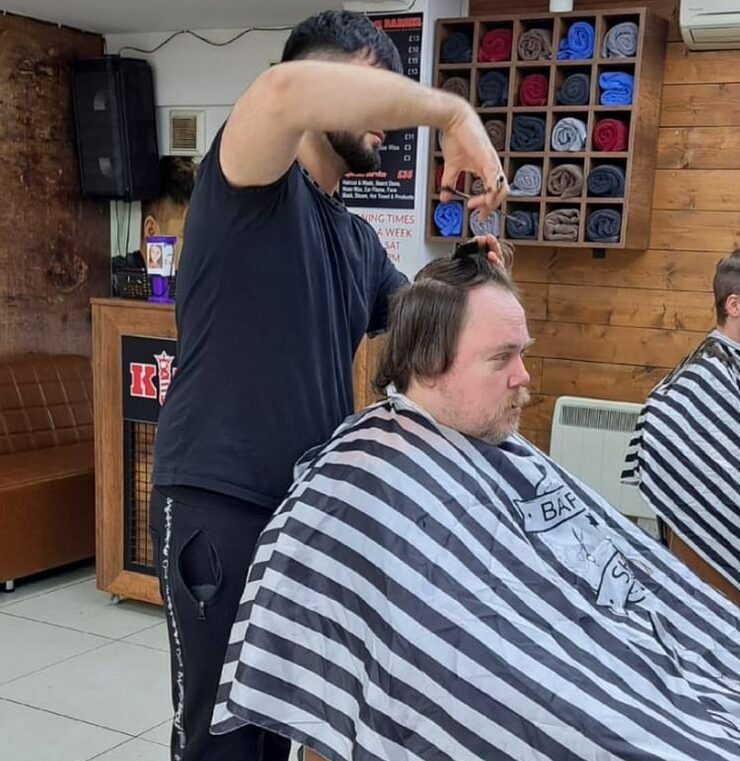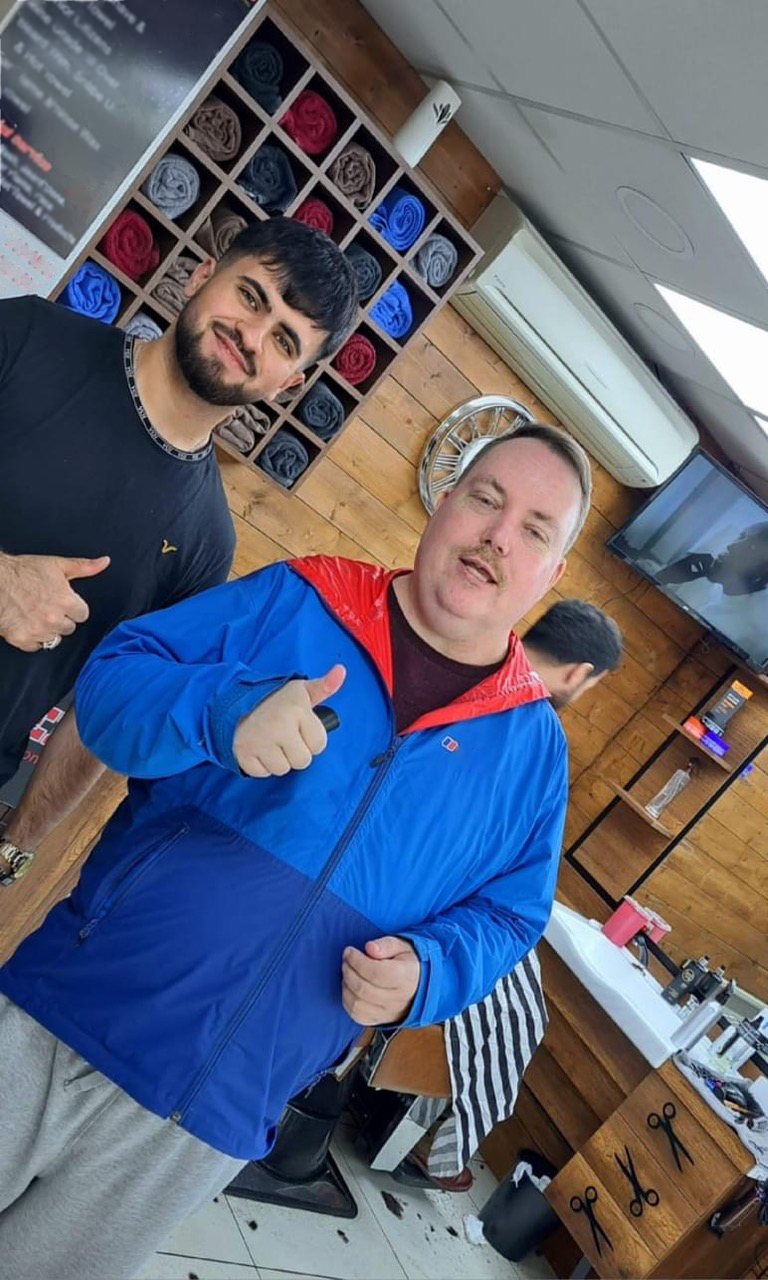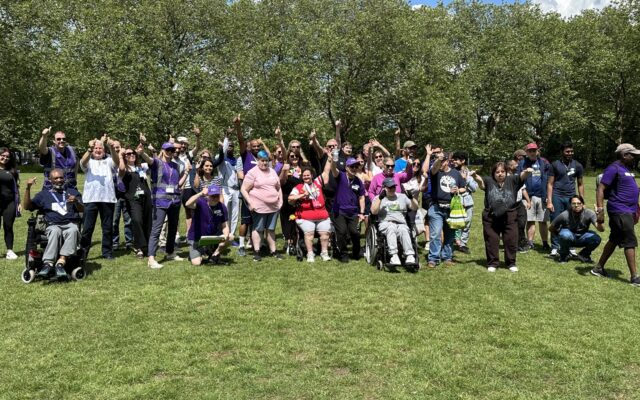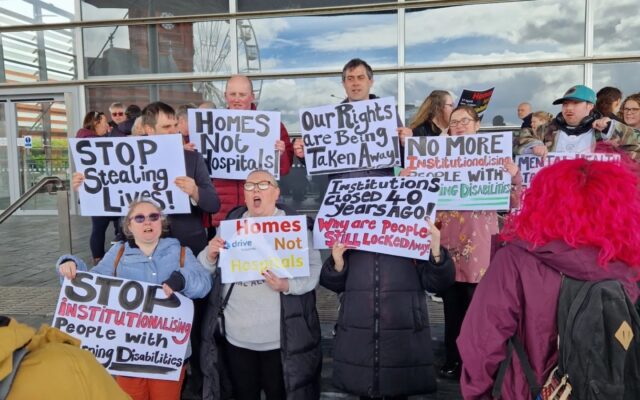Christian had gained a complex reputation, which had kept him in hospitals for over 30 years. In December 2021, the local commissioner met Christian as part of a hospital review in Somerset. He found him curled up on a bean bag, looking very unkempt, wearing ragged clothes and with long, ungroomed hair and beard.
Christian was neither speaking nor responding to anyone. He was gaining nothing from being in an institutional setting and desperately needed to get out to regain his life.
The commissioner decided to engage community interest company LivesthroughFriends as expert support broker and commissioner to make this happen for Christian.
When LivesthroughFriends and its clinical partner Studio 3 started to build a relationship with Christian, he shared that he wanted to get out of hospital and live independently in his own home in Weston-super-Mare.
LivesthroughFriends, established in 2007, believes that everyone deserves a good life. It helps autistic people and people with learning disabilities who have gained complex reputations to get out of hospitals and institutions to implement what the organisation calls a good life plan.
We were told Christian would be hard to engage. This could not have been further from the truth
The company undertakes detailed planning and implementation roles, usually on behalf of statutory commissioners.
LivesthroughFriends has nine part-time executive and non-executive directors, and one part-time member of staff. Working in England, Scotland and Wales, it also partners with international organisations beyond the UK.
It is supporting 20 people to get their good life.
Given the system’s problems in progressing deinstitutionalisation and inclusion for people who have acquired very challenging reputations, LivesthroughFriends frequently undertakes pro bono work when approached by desperate families.
It works through three main steps to help people achieve a good life.
Step one: getting to know you
The first step to getting a good life is for LivesthroughFriends to start to get to know a person. This can be done in many different ways.
For some people, it’s doing an activity together such as walking, baking or caving. For others, it’s an informal chat or convening circle meetings (meetings where all participants have an equal voice) using person-centred planning tools.
Sometimes, we rely on family and loved ones to help us capture the essence of the person in their good life plan. A broad range of professionals are also spoken to.
We progress at the person’s own pace to build a good relationship so that, together, we can identify what really matters to them. If an individual does not have a support network, we work to build personal networks throughout this process.
We had been told that Christian would be hard to engage. Nothing could have been further from the truth.
Step two: focus on assets
The second step is to focus on what we call good life plans – with the emphasis on the person’s assets, gifts, skills and aspirations, not deficits.
We are clear that contributing and participating lifestyles are at the heart of a good life. We tend to pay more attention to this than strategies for behavioural management having learned that this is the key to sustained success. This helps us focus on what specifically will help people get a good life.
Next, we intentionally source the type of support provider that will help the person reach their goals and nurture a strong, resourceful and independent citizen who has agency and is valued for their contribution to their community.
We draw in clinical expertise to create a low-arousal plan (an approach to managing distress, which encourages stress reduction and de-escalation, with a focus on the behaviour of supporters). Professor Andy McDonnell, a clinical psychologist, developed this approach in the 1980s and in the 1990s established Studio 3, clinical partners of LivesthroughFriends.
With clinical expertise, we co-create personalised housing and support arrangements alongside a budget.
Step three: the right people
The third step is to work with organisations that have proactive, resilient leadership to undertake bespoke staff recruitment involving the person and their family. This means we can find people with the right character, skills and interests.
We then work alongside the person during their transition out of hospital and throughout the first year to develop supporters who take personal responsibility and are solutions focused and creative possibilities thinkers. This is so they grow as community workers, network builders and skilled people confident to positively manage risk.
Contributing and participating lifestyles are at the heart of a good life. We pay more attention to this than strategies for behavioural management
Hurdles
There are, of course, challenges.
A lack of communication around information and decision-making was one of the biggest problems when Christian was moving out of hospital. This had a significant negative impact on his mental and physical health.
A suitable permanent home could not be found in the time available so Christian moved into a temporary flat.
Without the tenacious support of the provider CJP Outreach Services, which employed someone to find accommodation, there would have been no one to act as tenant and leaseholder on behalf of Christian to secure the property for him and enable the move to happen.
Many ‘firsts’ for Christian
As for Christian’s new life, he has experienced many firsts since leaving hospital, enjoying bowling, the funfair and the beach.
Christian says he loves his new home and that he has enjoyed going to the barbers to get his hair and beard cut.
He has recently been asked to join a local pool team. He says he is a “whole new man!” His team describe him as a resourceful, kind, friendly, funny and genuine man.
In September 2023, Christian moved to his permanent home then enjoyed celebrating Christmas for the first time in a very long time.
Amanda Topps is a director at LivesthroughFriends
Christian after haircut






